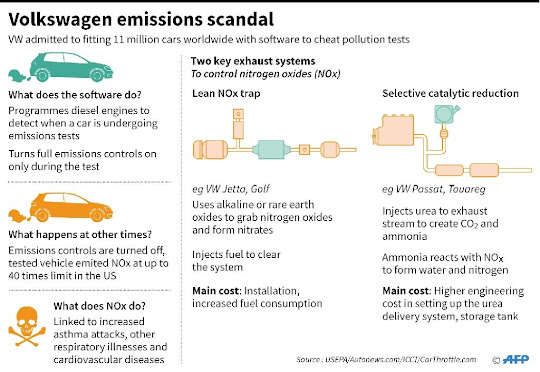Enri Damanhuri, Bandung, The Jakarta Post
A major flood threatens Jakarta. At least that is what was implied by the Meteorology and Geophysics Agency (BMG), which predicted that a high tide of up to 2.2 meters will affect northern Jakarta within the next few weeks, with the worst affected areas expected to be Penjaringan and Pluit. High levels of precipitation could also cause floods of up to half a meter deep in Cawang, Cakung, Jatinegara, Pancoran and Rawa Jati (Kompas, Dec. 5).
This is concerning, at least for us Jakartans and other residents of coastal areas. One problem that has not yet been solved is how to manage our garbage to avoid flooding. Now we have to add high tides to the list of threats.
The easiest answer to the question as to what causes the floods nowadays is the dramatic impact of global warming affecting all parts of the world. The floods are caused by bad weather and storms, and the melting ice is affecting the flow of water, leading to deluges.
However, we may have forgotten another reason that needs to be addressed: the intensive coastal reclamation work in North Jakarta was one of the cause of the floods from Ancol to Kapuk Naga at the end of November.
We may wonder about the floods in the U.S. or UK due to Hurricane Katrina or the heavy rains that caused the big rivers of Europe to overflow. Countries that are well-developed in terms of surface water management, through well-prepared drainage systems, pumps and control dams, in addition to proper waste management, where it is rare to find garbage plugging up the system, still have to deal with the problem.
Surely the rising waters will wreak havoc in developing countries, that are still only introducing such technology, as in Indonesia.
Floods do not just transport water. They contain bacteria, germs and domestic waste. It's no secret that the floodwaters also contain dangerous substances, such as hazardous chemical waste.
We face many problems in handling floods in Jakarta: from preventing the floods and reducing their impacts, to appraising and repairing the damage after the floods so as to prevent them from happening again.
There needs to be legal consequences for those who cause losses and causalities, whether intentionally or otherwise. The Environmental Management Law (No. 23/1997), which makes pollution a criminal offense, needs to be used as a point of reference by the authorities so as to discourage those who do not respect the environment and contribute to its destruction by either purposely mismanaging or carelessly managing waste.
When faced with flooding, people are normally most concerned about saving themselves and their material and productive assets. But what about the dangerous waste that can pollute the water and leech into the ground? This is especially worrying given the number of both large and small industries located in north Jakarta.
There needs to be strict law enforcement by the environmental authorities and related institutions to control how industrial waste is managed so as to avoid people falling sick or dying because they come into contact with dangerous chemicals during the floods.
The stakeholders, all of us, need to take a stand to reduce the impact of improper waste management, and the international forum on climate change in Bali is the perfect opportunity for Indonesia to take action and think about how improper waste management, domestic and industrial, has contributed to polluting our environment.
In order to affect a change in mentality and behavior among the Indonesian people, routine and ongoing socialization of good environmental practices and strict law enforcement of environmental regulations are necessary. The government, as one of the main stakeholders, needs to fulfill its role as the main agent of change by widely distributing information to the public and corporations about the importance of proper waste management, especially for industry-generated hazardous waste.
Let us not forget that waste management, especially urban waste that consists mainly of organic carbon substances, is a significant contributor to greenhouse emissions, especially since waste management systems in Indonesian landfills (TPAs) create methane gases that are improperly managed.
It is commonly known that the greenhouse effect of methane gas is 21 times worse than that of CO2. Of course, this does not mean that we have to blindly apply the values or emission factors provided by experts from developed countries. It requires systematic mapping to explain how proper waste management can serve as one of the important contributors to the effort to reduce greenhouse emissions in Indonesia.
From a management aspect, a program to reduce greenhouse emissions needs to start with the basics; the implementation of the 3-Rs (Reduce, Reuse, Recycle). This program can be socialized among garbage and industrial waste generators through discussion panels to formulate rules of conduct involving all relevant parties.
At least there will be a symbiosis of mutualism; both horizontally and vertically. More importantly, municipalities and industry players need to start managing their waste properly. When they realize that the hazardous waste generated by companies in their areas requires professional handling, according to the environmental rules and regulations, they will come to realize that they need to delegate this task to professional companies that specialize in industrial waste management.
As waste management is their core business, they will have the facilities and capabilities needed to ensure that the waste will be properly managed and will not damage the environment. To quote the old saying, "We should leave it to the experts." It's still not too late for this.
The writer is a professor in the School of Civil and Environmental Engineering at the Bandung Institute of Technology (ITB). He can be reached at e_damanhuri@ftsl.itb.c.id






No comments:
Post a Comment